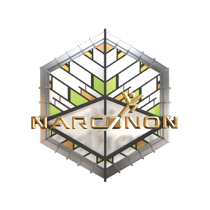A Checklist for Helping an Addicted Loved One Seek Treatment

Helping a loved one overcome a drug habit or alcoholism is no walk in the park. It can be a real challenge and an ongoing one. When you are trying to help your loved one, trying to convince them to get better, it helps to have tips, tools, and techniques at your disposal.
Important Points to Remember
When you’re talking with an addict, trying to get them to understand the sheer need for them to get help, you have to be quick on your feet. Addicts are usually fast thinkers themselves, and it can be easy to fall into mind games with them.
That’s why we’ve included this checklist below, a rapid series of tips that we encourage you to go over several times. Try to get these items down pat, memorize them if you can. Even go over them with a family member or friend. These can be your tools, your ammo you could say, for the next time you confront your addicted loved one.
Just the fact that you are trying to help your addicted loved one is a huge deal. It’s admirable. It’s the right thing to do. But just making an effort isn’t always enough. What you say and how you act around your addicted loved one can make a big difference in your degree of success.
Memorize the following checklist and keep it for future discussions with your addicted loved one. And for further reading, we also have another great article which explores these steps in depth and which goes into detail on how to apply these items.
- Don’t be naive. Being naive around an addict opens the door to manipulation. Caution yourself against believing everything they say. When you see something suspicious about them or their behavior, trust your instincts first and their words second.

- Don’t enable your loved one. Enabling is one of the primary ways by which addiction is allowed to continue. To enable a loved one means to act in any way which allows that person to maintain their habit. That can include giving them money, lending them the car, giving them a cell phone or giving them a place to stay. All of this makes their life more comfortable and makes it so that they can go out and get high again.
- Openly reject lies. Don’t try to negotiate or debate with your loved one when they try to lie to you. Reject all lies and manipulation altogether. Only accept communication from them that you know is true.
- Watch the paper trail. If you are not sure whether or not your loved one is using drugs, check in on their financial situation. Do they always seem to need money? Are they stealing to get it? An active drug habit or drinking habit is almost always coupled with dire financial straits.
- Protect your valuable possessions. Be sure to protect your valuables any time you know your loved one is going to be around. No sense in losing a cherished valuable when you’re trying to help your family member get clean.
- Keep an eye and ear out for ongoing problems. Still unsure if your loved one is addicted? If your loved one keeps having issues that seem never to resolve, the issues probably are not the real problem. Something is lying beneath it that he or she hasn’t told you about yet.
- Don’t blame yourself. It’s difficult not to take on some of the blame when someone you care about falls prey to a drug habit. It’s human nature to assume we erred in some way as well. But don’t let yourself get into a self-blame condition. That will slow you down and hamper your efforts in helping your loved one.
- Address and resolve addiction as early as possible. This is very important. The longer one uses drugs, the greater the likelihood they’ll lose their life as a result. Help your loved one get clean as soon as possible.
- Do your homework when choosing a treatment center. While there is probably no such thing as a “bad” rehab program, not all treatment centers are created equal. When you are picking a drug and alcohol rehab center to send your loved one to, do your homework, and be sure you are selecting a quality program.
- Let the rehab process work. Going through rehab is not an easy thing to do, and sometimes addicts will try to find ways to get out of rehab. They may concoct tall tales and downright lies about the program to manipulate you into pulling them out of the treatment center. It’s all so they can get back to using drugs again. Let the rehab process run its course and do what it is supposed to do.
- Continue to help your loved one. Life after rehab is world’s better than life before rehab, but life after rehab still takes a considerable amount of work. There will be some challenges in transitioning back into day-to-day life. Be sure to be there for your loved one and support them.
- Act as a safety net to guard against relapse. Make sure your loved one knows you are part of their “safety net.” While going through rehab does save an addict’s life and puts them on a path to betterment, the threat of relapse is still a factor. Be sure to help them through any difficult times they might have.
- Never lose hope. You don’t lose until you give up. If you never give up, if you continue to help your loved one and continue to encourage them to get help, to get sober, and to stay sober, they will come around.
- You are not the only one in this. Whenever you’re feeling especially overwhelmed, seek help for yourself too. Don’t ignore your self-care in your efforts to help your loved one. You can’t help them if you are not doing well yourself.

- Be willing to ask for help. If you’re feeling overwhelmed, or if you’re not making any progress with your loved one, reach out to other family members or even a professional interventionist. It’s not uncommon that getting help for a loved one ends up being a group effort where several people get involved. And that is totally okay.
Keep this checklist in your back pocket, and be ready to use it. Be persistent whenever you’re working with your loved one, and don’t ever stop trying to get them clean and sober. Get the rest of your family to help, and keep at it until the addiction becomes a thing of the past.
Reviewed and Edited by Claire Pinelli, ICAADC, CCS, LADC, MCAP, RAS


